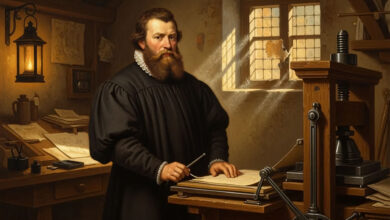When Robert Redford died in his sleep on 16 September, 2025, at the age of 89, he left behind a legacy that transcended Hollywood star power. He was not just an actor: he was a director, producer, environmental activist, champion of independent film, and cultural icon. His life spanned nearly nine decades of transformation in cinema, and he played many roles, both on and off screen, that shaped how we think of arts, activism, and the power of storytelling.
Early Life and the Road to Stardom
Born Charles Robert Redford Jr. on 18 August, 1936, in Santa Monica, California, Redford’s early years weren’t cushioned by privilege. Raised partly in Van Nuys, he found early escape and inspiration through art, sports, and performance. He had talents that spanned multiple disciplines, including drawing, baseball, and acting. Although not always a straightforward path, he attended the University of Colorado, faced family losses, and encountered stumbles along the way. Still, it was clear early on that he was pursuing something more than just ordinary.
His formal training included attending the American Academy of Dramatic Arts and early appearances in television shows and Broadway productions. By the 1960s, Redford was beginning to stand out: part actor, part dreamer, and fully magnetic. His good looks helped, but his ability to combine charm with depth set him apart.
Breakthrough Roles & Hollywood Stardom
Redford’s breakthrough came in the late 1960s, when he paired with Paul Newman in Butch Cassidy and the Sundance Kid (1969). The chemistry, the tone, and the era all aligned. He followed that with several movies over the next few years, including The Candidate (1972), but it was The Sting (1973), again with Newman, which solidified his status as one of Hollywood’s leading men. Alongside blockbuster hits, he also chose more complex, character-driven roles: the investigative journalist in All the President’s Men, the romantic lead in The Way We Were, and the thoughtful wanderer in Jeremiah Johnson.
Over the decades, his screen presence evolved. Roles in Out of Africa, The Natural, Sneakers, Indecent Proposal, and A River Runs Through It showed not just his versatility, but his willingness to age on screen with dignity, to shift from heart‑throb to wise, reflective lead.
Director, Producer, and the Birth of Sundance
If acting defined Redford’s early career, the foundation of Sundance defined much of his later impact. As Hollywood’s studios became more risk-averse, Redford believed in creating space for stories and voices that didn’t fit the blockbuster mould. In 1981, he founded the Sundance Institute. From that sprang the Sundance Film Festival, an annual gathering in Utah that became a launching pad for independent filmmakers, many of whom are now household names.
Redford’s directorial work matched his actor’s integrity. In Ordinary People (1980), his direction earned him an Academy Award, and the film won Best Picture. He continued to direct movies, including Quiz Show, The Milagro Beanfield War, The Horse Whisperer, The Legend of Bagger Vance, and others. His choices behind the camera often explored character, moral ambiguity, nature, family, and the frailties that bind us all.
Activism, Environment & Social Vision
Robert Redford was never content simply to entertain. He believed film could also provoke thought, stir conscience, and serve as a vehicle for change. He used his fame and influence to advocate for environmental causes, Indigenous rights, and social justice. He helped raise awareness of issues like conservation in the American West, protecting wild lands, and supporting policies addressing climate change.
His commitment wasn’t superficial. The Sundance Institute, along with his other efforts, often supported documentaries and films that dug into environmental politics, social inequality, and the tension between human progress and natural preservation. He understood that storytelling could be both a mirror and a hammer: reflecting society’s vices and building awareness toward its better aspects.
Later Years, Last Roles, Enduring Influence
Though Redford officially saw his career slow in later years, he never entirely left cinema behind. The Old Man & the Gun (2018) was presented as his farewell acting film, though he remained thoughtfully involved in projects, including cameo work as recently as 2025. His decision to gradually step back from acting allowed him to focus more on his other passions, and on ensuring that his legacy wasn’t just built on screen but in the infrastructure he helped build for others.
His personal life was marked by joys and tragedies: marriages, children, loss (notably the death of his son, James, in 2020), and a deep devotion to his family. He and his longtime partner, Sibylle Szaggars Redford, shared a life rooted in both art and nature, preferring the quiet of Sundance, reflections by the mountains, over the glare of Hollywood.
The Day That Changed Cinema
Robert Redford passed away peacefully in his sleep on 16 September 2025, at the age of 89, at his home in Sundance, Utah, “the place he loved, surrounded by those he loved,” as his representatives put it. News outlets and colleagues responded almost immediately, but the pattern of tributes spoke not only to his fame, but to the many other facets of him as a person: his acting, his directing, his environmental advocacy, and his belief in art that uplifts.
What Redford Leaves Behind
His filmography contains dozens of memorable roles: Butch Cassidy and the Sundance Kid, The Sting, All the President’s Men, Out of Africa, The Natural, Ordinary People (which he directed), and more. Each was different, yet many shared similar qualities: morality under pressure, individuals facing larger systems, nature and beauty set against conflict. He rarely played villains; instead, he often played men wrestling with ideals, regrets, and the cost of choices.
Perhaps even more important is the institution he founded. Sundance created space for voices outside the mainstream, including writers, directors, and performers who might have struggled to find backing otherwise. Many filmmakers who rose through Sundance’s workshops or whose films premiered there went on to change cinema, culture, and even politics.
He also leaves a body of work with environmental messages baked in, not as preachy pamphlets, but as vivid landscapes, wildernesses, the pastoral, and the contrasting tension between industrial or political power and the natural world.
And then there’s his personal humility. Despite his star status, Redford was often remembered by colleagues as generous and patient, with a quiet commitment to artistic integrity. He didn’t just act; he nurtured. He believed in mentorship, in giving space for others to grow.
The Larger Picture
Robert Redford’s life feels like a story of balancing contradictions: glamour and authenticity, fame and purpose, action and observation. He lived in the golden ages of studio systems, the rise of independent film, the environmental awakening, and political turbulence. Yet he managed to remain faithful to core beliefs: that art matters, that the environment needs protection, that stories can change people.
He showed that being a movie star needn’t mean being superficial; that activism can stem from artistry; that legacy is built not only by performing but by creating space for others.
Lasting Impact
As the world remembers Robert Redford, it won’t be just for the iconic quotes, the romantic leads, or the crisp Western landscapes. It will be for a kind of faith, faith in beauty, in nature, in storytelling, and in the belief that what you build for others outlasts what you create for yourself. His stage is still playing, inside every film festival that screens an indie project, every environmental cause that uses film to amplify its voice, every actor, every director who strives to be more than just seen.
Robert Redford FAQ
Robert Redford was an American actor, director, producer, and environmental activist known for iconic roles in films like Butch Cassidy and the Sundance Kid, The Sting, and All the President’s Men, as well as for founding the Sundance Film Festival.
He was born on August 18, 1936, in Santa Monica, California, USA.
Robert Redford passed away on September 16, 2025, at the age of 89 in Sundance, Utah. At the time of writing this, no official cause had been reported, but it was reported that he died peacefully in his sleep.
Redford was best known for his work in classic American cinema, his roles in political and western dramas, and for pioneering independent film through the Sundance Institute and Film Festival.
Yes, Redford received numerous accolades, including an Academy Award for Best Director for Ordinary People and a Lifetime Achievement Award from the Academy in 2002.
Absolutely. Redford was a passionate environmentalist and advocate for independent filmmaking. He supported progressive causes and often used his platform to raise awareness about political and environmental issues.
Founded by Redford in the early 1980s, the Sundance Film Festival became the leading showcase for independent films in the United States, helping to launch the careers of many now-famous directors and actors.




